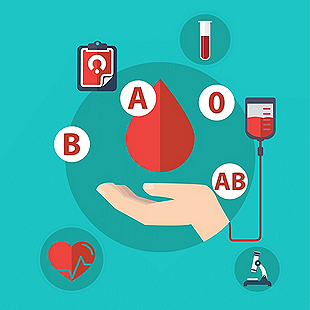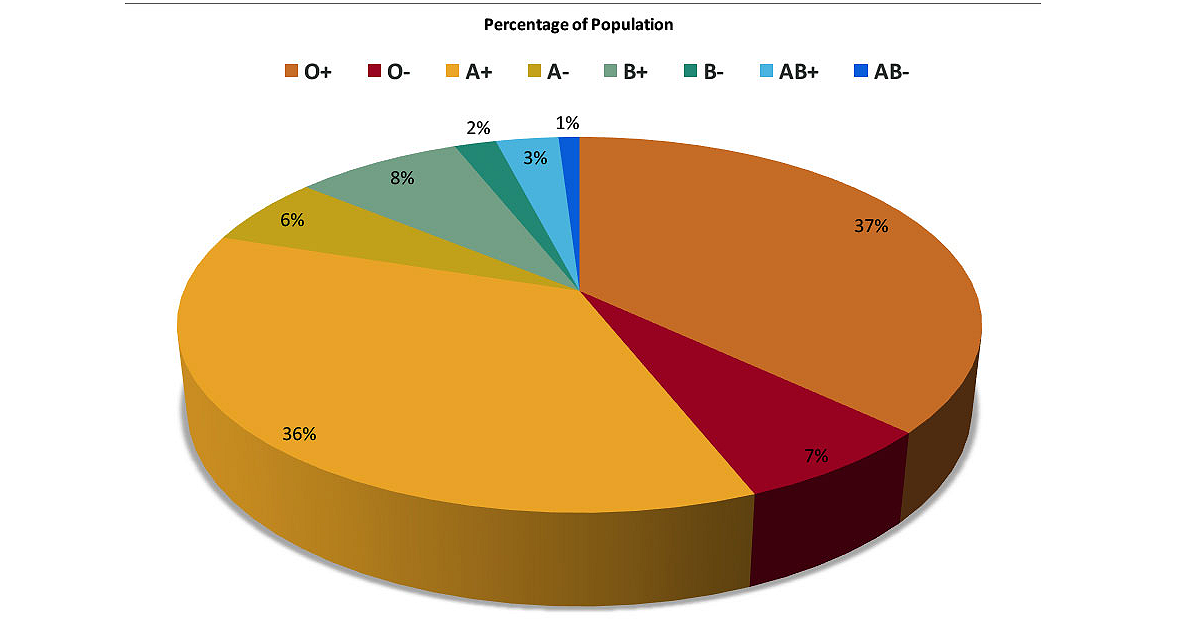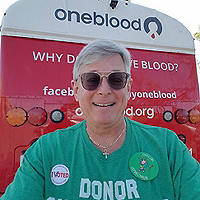What Makes Blood Types Rare?
Dan Eberts
October 26, 2021
Dan Eberts
October 26, 2021
There is an old saying in the blood donation world: The rarest type of blood is the one we don’t have when it’s needed most! There is certainly vital truth in that statement at many levels. However, there are several factors that go into determining if a blood type is rare.

The Cleveland Clinic defines rare blood types as a blood type, "that happens at a rate of 1 per 1,00 people or less. Another definition is that your blood type is rare if you don't have an antigen that most people have or do have an antigen that most people don't have."
Blood types are divided into a system called the ABO blood group which involves two antigens and two antibodies that are found in human blood. The two antigens are antigen A and antigen B. The two antibodies are antibody A and antibody B. The antigens are present on the red blood cells and the antibodies in the serum.
The antigen property of the blood for all human beings can be classified into four groups. The National Health Service defines the four main blood groups as:
Blood Group A - Has A antigens on the red blood cells with anti-B antibodies in the plasma
Blood Group B - Has B antigens with anti-A antibodies in the plasma
Blood Group AB - Has both A & B antigens but no antibodies
Blood Group O - Has no antigens, but both anti-A and anti-B antibodies in the plasma
Antigens are like thumbprints on each of your red blood cells that make them unique from anyone else. The variety of them or lack of them is one of the reasons why donor and patient red blood cells must be cross-matched for compatibility prior to transfusion. If the donor’s blood has certain ones that are foreign to the ones on the patient’s red cells, the patient’s immune system will attack them and cause a reaction that can be mild, severe, or even cause death!
The International Society of Blood Transfusion expounds upon this and the diversity in known antigens and the blood groupings that have been identified, “In general, the majority of the population has one of the ABO blood groups and is Rh positive or negative. There are >200 minor blood groups and >600 known antigens besides A, B and Rh. Because blood groups are distributed differently in different ethnic groups, finding a blood donor with the exact same blood type is a huge challenge.”
This is why blood donor diversity is so critical to have the right blood in the right place at the right time. This is especially important for patients who need to receive multiple transfusions all at once or for chronic conditions over their lifetime.
Each time a patient receives a transfusion to live, their immune system can react to it. The closer the genetic match the less formation of antibodies will occur, creating less cross-matching problems in subsequent transfusions.
Thus, the best blood match for a patient is from someone who most closely shares their heritage. This is true not only for blood transfusions but also for bone marrow and stem cell transplants as well as organ donors.
We are all members of the human race and we all bleed the same color. Yet, in the uniqueness of our blood, we can help others who are in a sense, distant relatives from limbs of our historic family tree. These patients will never know who we are, but we will know who we are, by caring and sharing the very best that is in us!

Ready to step up and share your power? Find a Big Red Bus or Donor Center location and make an appointment or walk-in.

Dan “the Blood Man” Eberts worked in the blood collection PR industry for over 30-years. Dan was a regular speaker at many industry conferences and often spoke at community events about the importance of giving blood. Dan, although retired, still comes back to OneBlood for tours of the donation and lab facilities.